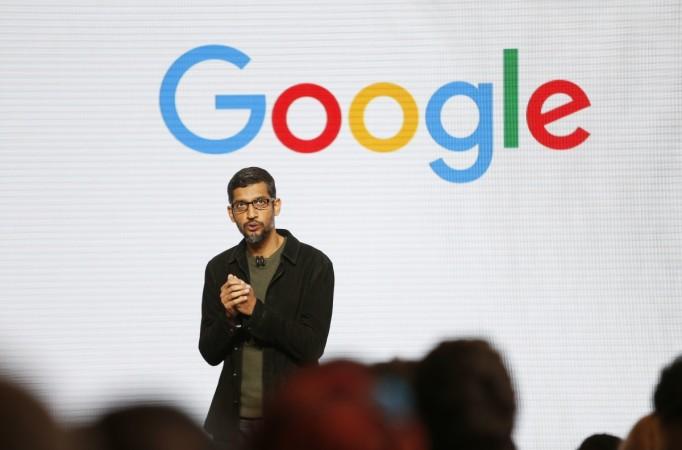
In support of free data flow across borders, Google CEO Sundar Pichai has been in touch with India's IT Minister Ravi Shankar Prasad, saying such a stage will urge global companies to contribute to India's digital economy and benefit India's new businesses that are waiting to expand globally.
In a letter dated September 5, Pichai said Google shares the vision of creating a 'Digital India' and that the company remains dedicated to being a part of India's development story. He thanked Prasad for his visit to Google's Mountain View ground, a month ago.
"Free flow of data across borders - with a focus on user privacy and security - will encourage startups to innovate and expand globally and encourage global companies to contribute to India's digital economy," he said.
He added the company will be in contact with his office to catch up on a portion of the specific points that were talked in the meeting. The development comes when the government is working on a data security system for India.
In July, a board headed by Justice B N Srikrishna had presented its recommendations and the draft bill on the subject of data protection to Prasad. It had recommended ventures for defending personal data, characterizing commitments of data processors as privileges of individuals, and having punishments for infringement. The government has looked for open input on the shape of the draft bill by September 30.

The recommendations include consent and a knowledge of what contains personal data including sensitive personal data, exemptions granted, handling data, storage restrictions for personal data, individual right, and such. It additionally forces conditions on the cross-border exchange of personal data.
The draft proposes that each data fiduciary in India will guarantee the storage of their personal data on a server in India. The government can notify certain classes of personal data as basic personal data that would need to be put away in a data center inside India.
The recommendations, which will have an effect particularly healthcare and budgetary services, have met with feedback from different quarters.
As of late, Internet and Mobile Association of India (IAMAI) had communicated its concerns around the bill, saying certain clauses around data localization and data handling are "restrictive" and will hurt new companies and startups. It had likewise warned that different nations, where Indian startups are expanding to, may ask for data localization as well.
Data localization additionally forces startups to search for more costly and ineffective local solutions, as per IAMAI.
"Collection and processing of firsthand data for monetisation is the only lifeline for startups," IAMAI said. "Restrictive clauses around purpose limitation, storage limitation and collection limitation will make it very difficult for startups and potential startups to get into the data business."
The new bill seems more to do with keeping an eye on the data of individuals and localizing it, for its own record. How Google under its parent company Alphabet plays a role in it, is worth consideration.



![Ultrahuman launches Ring PRO, free charging case with more than just power and Jade AI [details] Ultrahuman launches Ring PRO, free charging case with more than just power and Jade AI [details]](https://data1.ibtimes.co.in/en/full/829151/ultrahuman-launches-ring-pro-free-charging-case-more-just-power-jade-ai-details.png?w=220&h=135&l=50&t=40)











![Ultrahuman launches Ring PRO, free charging case with more than just power and Jade AI [details]](https://data1.ibtimes.co.in/en/full/829151/ultrahuman-launches-ring-pro-free-charging-case-more-just-power-jade-ai-details.png?w=220&h=135)

